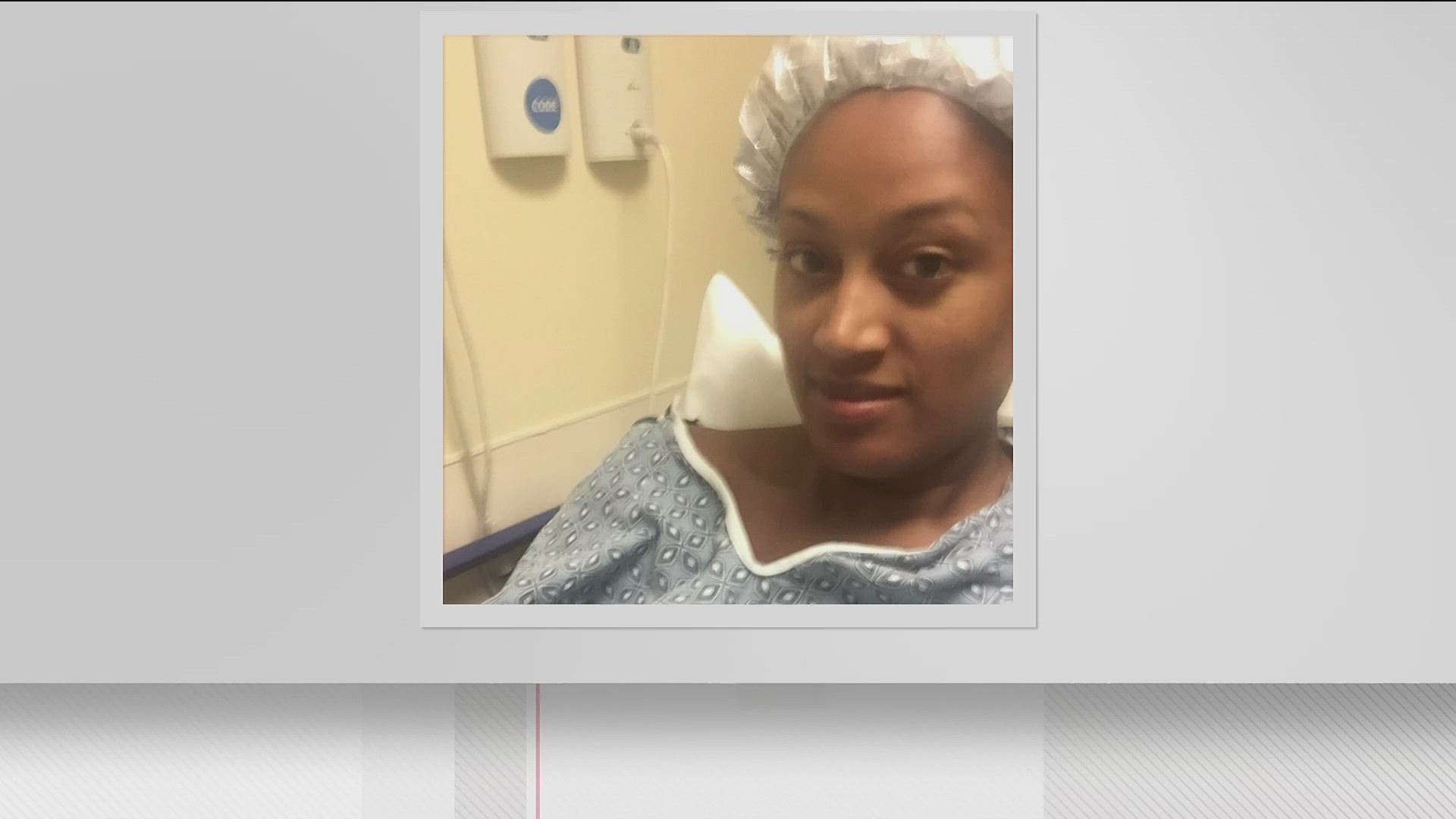ATLANTA — October marks Breast Cancer Awareness Month and there's an important obstacle tied to treatment that advocates say needs more attention: the cost.
A new report from Susan G. Komen breaks down the impact of that hardship, with breast cancer patients surveyed seeking financial assistance for needs ranging from rent and housing to paying for utilities, gas, and food.
"What people don't realize is that the expenses of daily living sometimes become a choice for people," Cati Stone, Susan G. Komen’s vice president of community health said. "We're hearing from women a lot of single moms, for example, who are struggling to pay their rent and stay in treatment. We're talking about struggling to pay for a roof over your head or food on the table or gas to put in your car. So these are baseline needs that every human needs to just be happy and healthy, notwithstanding a breast cancer diagnosis."
Tara Douglas Frankin is among those who've felt the strain. The self-employed mom was diagnosed with breast cancer at age 33, and while she committed to a mindset of positivity amid treatment, the cost of that treatment produced unexpected challenges.
"Once I found out I'm going to have surgery and be out for 12 weeks, I thought 'What am I going to do?'" Douglas Franklin shared.
According to the CDC, breast cancer has the highest treatment cost of any cancer and Susan G. Komen found juggling those costs can be detrimental when it comes to patient care and even daily life.
"Almost half of breast cancer patients report that even mild financial toxicity affects treatment choices, quality of life, medication adherence, bankruptcy rates and even mortality," the organization's report states.
To counter such stress, Susan G. Komen offers support to women through the organization's Patient Care Center and Financial Assistance Program. Patient navigators help women understand their options and questions to ask doctors and also provide financial support to offset expenses like rent, groceries, transportation or childcare for those who qualify.
"We want people to be focused on getting better, not focused on whether they're going to be able to keep the lights on for the next month," Stone said.
The financial strain, Stone said, is a conversation that needs to be talked about more openly. She said more support is needed for those feeling such effects.
“Unfortunately, our system is set up for patients to bear an unfair financial burden in order to access the healthcare they need, whether it be losing a half-day of pay in order to make their regular screening appointment, coming up with the money to afford the additional imaging and biopsy required for a diagnosis, or being forced to skip doses of their medications because they can’t afford the next prescription," Molly Guthrie, the organization's vice president of policy and advocacy said.
“The opportunity for policymakers to remove financial barriers to care is now,” Guthrie said. “If we do nothing, we will continue to lose people to this disease simply because of financial barriers that result in unequal access.”
More Than Pink Walk
On Oct. 21, Susan G. Komen's 'MORE THAN PINK Walk' will raise critical funds for financial and support programs for breast cancer patients.
When: Saturday, Oct. 21, 2023 | Gates open at 7 a.m.; walk starts at 9 a.m.
Where: Lenox Square 3393 Peachtree Rd NE, Atlanta, GA 30326
Details: Register Online at komen.org/georgiawalk

